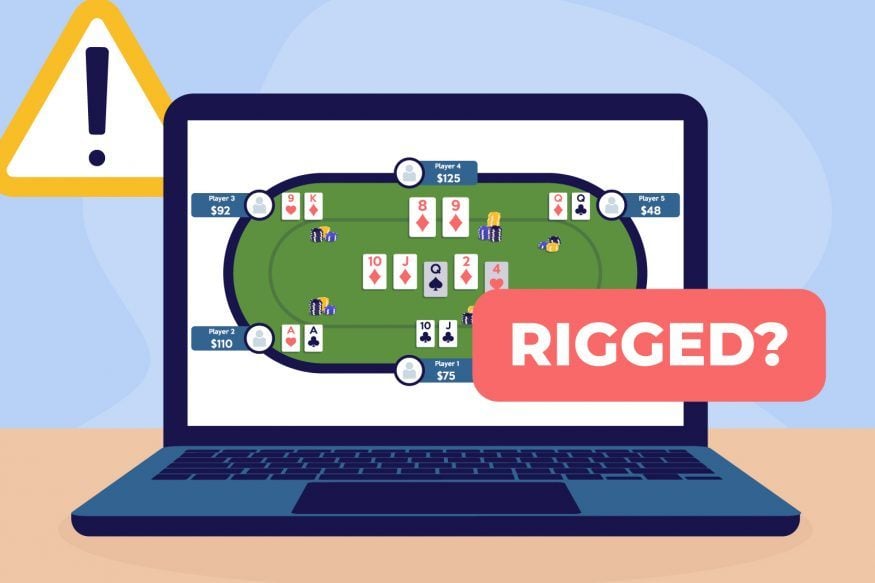Debunking the Myth: Online Poker Is Not Rigged

Understanding the Skepticism Behind Online Poker
If you’ve participated in online poker, chances are you’ve questioned the fairness of the game after suffering from unexpected losses or dramatic “bad beats.” Given the intense swings you can experience within just a few sessions, it’s understandable why suspicions about game integrity sometimes arise. However, the nature of poker itself-steeped in math, probability, and variance-often explains outcomes that might otherwise seem unlikely. The difference in perception is even greater compared to traditional live poker, primarily because online platforms deal hundreds more hands per hour, boosting the volume of dramatic moments you experience.
Why Licensed Online Poker Rooms Are Secure
When you play at well-known poker platforms, such as PokerStars, GGPoker, or PartyPoker, your experience is governed by regulatory bodies. These organizations-including authorities like the Malta Gaming Authority (MGA) and the UK Gambling Commission (UKGC)-grant licenses only after verifying that operators uphold rigorous fairness standards. Every reputable online poker room must submit their software for scrutiny before launching and must undergo periodic compliance checks. On top of regulatory oversight, many operators commission independent third-party audits and prominently display certifications to reassure players, underlining their commitment to a fair playing environment.
How Card Distribution Works: The Role of RNGs
At the heart of online poker fairness lies sophisticated Random Number Generator (RNG) technology. Industry-leading RNGs are employed to ensure that every card dealt is unpredictable and unbiased. RNGs operate by rapidly cycling through immense sequences of numbers to randomly determine card outcomes at every point-from your starting hand to the final river card. While it may seem at times that a particular card was destined to appear, this is just a reflection of probability and not a flaw or rigged system.
Track Your Performance with Hand Histories and Software
To put any doubt to rest, modern players have access to powerful poker tracking tools such as Poker Tracker and Hold’em Manager. These applications allow you to log, review, and analyze thousands of hands played across countless sessions.
Over time, your statistical records will reveal trends and patterns consistent with poker mathematics. For example, analyses show that hands like AA (pocket aces) remain the most statistically profitable over large sample sizes. You can even filter to see how often certain hands win or lose; the outcomes mirror theoretical probabilities. Extensive investigation by data experts has consistently confirmed that major online sites show no irregularities in hand outcomes.
Why Poker Sites Value Fair Play Above All
For major poker operators, their reputation means everything. The integrity of their games underpins trust and ensures continued business. With millions generated from rake (the small fee taken from every pot), there’s no incentive for these sites to manipulate hands and risk losing their major source of revenue. Transparency and trust are crucial for their survival. Any scandal would jeopardize their business much more than any conceivable short-term gain from unfair play.
Consistent Winners Demonstrate Game Fairness
Another strong argument for the legitimacy of online poker comes from observing professional and experienced players. There are hundreds of recognized poker professionals who have maintained consistent winning records over years of online play. Their success is not a fluke-by analyzing their published hand histories and public records, it becomes clear that skill and strategy prevail over time, as expected in a truly random game.
How Poker Rooms Earn-No Need for Foul Play
Online poker operators generate revenue by charging rake, a transparent commission from every pot or tournament fee. Rake is collected regardless of who wins or loses, so the site has no motivation to favor certain players or manipulate outcomes. The main reason some believe games are "action rigged" is due to the excitement already inherent in poker; the natural mathematical volatility of the game creates plenty of action on its own. In fact, it benefits the sites if all players remain engaged and are not discouraged by excessive losses.
Why Poker Sites Don’t Care Who Wins or Loses
Unlike many casino games where the house risks its own money, poker sites simply act as facilitators. Their only interest is in fostering an active environment where money regularly circulates between players. For the industry to thrive, it’s essential that all players-winners and losers alike-feel they have a fair shot each time they play. That’s why deliberate manipulation by the site would run counter to their long-term interests.
The Truth Behind Increased Bad Beats Online
If you’ve found yourself noticing more bad beats online, the explanation is surprisingly simple: online platforms deal far more hands per hour than traditional live games. While a live poker table might deal 30-40 hands each hour, online players taking advantage of multi-tabling can see hundreds of hands in the same period. The higher hand count results in more frequent dramatic moments-statistically, more “bad beats” are bound to occur. Additionally, as humans, we often recall negative streaks far more vividly than our wins, leading to biased perceptions about fairness.
Conclusion: The Verdict on Online Poker Fairness
In summary, the overwhelming evidence shows that online poker at regulated, mainstream sites is fair and not rigged. Licensed platforms use vetted software, certified RNGs, and independent auditing to ensure genuine randomness. The presence of consistently successful players, transparent revenue systems, and robust regulatory oversight further cement this conclusion. If you find yourself questioning outcomes, the best path forward is to focus on improving your skills-over time, your own data and results are the best proof of the game’s integrity.













